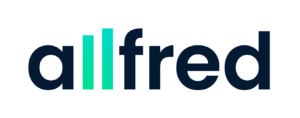In today’s creative industry’s vibrant and ever-evolving world, savvy agency leaders know that mastering agency operations is key to staying ahead. Think of agency operations as the heartbeat of your business, encompassing everything from the nitty-gritty of resource planning to effective project management, reporting or fostering those all-important client relationships. Each element is vital to the well-oiled machine of your agency’s workflow and management.
As we take this journey together to optimize your agency operations, we will dive into some crucial areas that are fundamental to enhancing your agency’s workflow and efficiency. We’re talking about real, actionable strategies designed to streamline your processes and weave in the magic of technology and tools. So, get ready to revamp your approach and elevate your agency operations to new heights of success and growth!
Table of Contents
9 Key Areas for Agency Operations Improvement
To enhance agency workflow and management, it’s crucial to focus on several key areas:
#1 Resource planning 📅
Resource planning stands as a critical strategic process. It encompasses allocating and managing an agency’s most valuable assets – human talent, technological tools, and time. Effective resource planning involves distributing these resources across various projects in a manner that aligns with project goals and timelines.
Importance
The significance of resource planning in a creative agency cannot be understated. It ensures that agency operations and projects are not only well-staffed with the right talent but also equipped with the necessary tools and allocated enough time to be executed successfully. This strategic allocation is key to meeting project deadlines and maintaining high-quality output. Moreover, it helps in optimizing the use of resources, preventing situations where resources are either underutilized or overstretched, thus reducing the risk of staff burnout and wastage of assets.
Strategies
To master resource planning, agencies should consider implementing several strategies:
- Utilization of Forecasting Tools: Employing resource forecasting tools can provide agencies with a clear outlook on future project requirements and resource availability. This foresight aids in preemptive planning and smoother project initiation.
- Regular Review of Resource Utilization: It’s crucial to regularly monitor how resources are being used across projects. This involves tracking the workload of staff members, the usage of tools and technologies, and the allocation of time to various tasks.
- Adaptive Resource Allocation: Being adaptive in resource allocation means reassessing and adjusting the distribution of resources as projects evolve. This flexibility allows agencies to respond to changing project demands, team capacities, and unexpected challenges.
- Technology Integration: Integrating resource planning with other agency management tools, such as project management software, can enhance visibility and coordination. This integration helps in creating a more cohesive approach to resource management, where all aspects of agency operations are interlinked and streamlined.
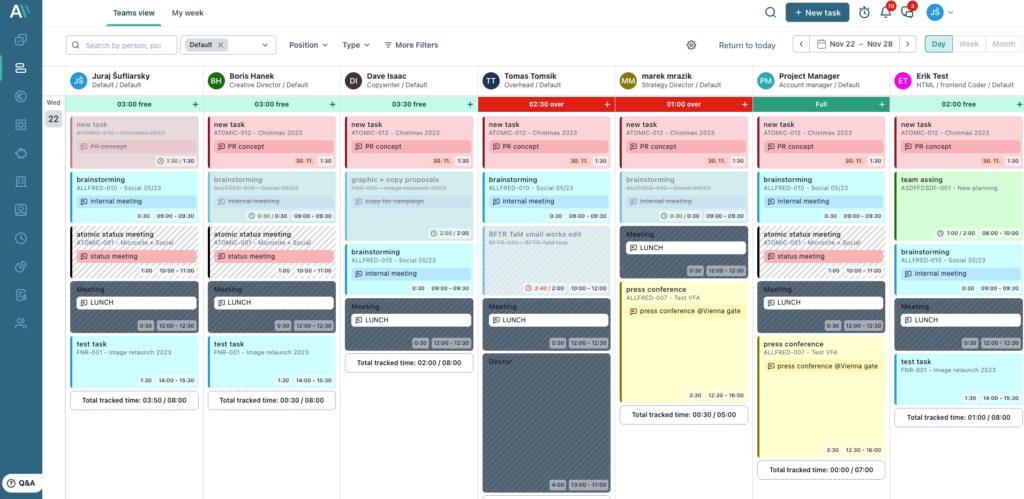
By focusing on these strategies, agencies can significantly improve their resource planning processes, leading to more efficient project execution, satisfied clients, and a balanced workload for their teams.
#2 Task Management 📋
Task management is a crucial component that drives the day-to-day agency operations. It encompasses the art of organizing, prioritizing, and meticulously tracking the progress of various tasks essential to completing agency projects. Task management is about creating order and structure in what can often be a chaotic and fast-paced setting.
Significance
Effective task management directly translates into enhanced productivity, as it allows teams to focus on the right tasks at the right time. It ensures that projects move forward in a systematic and organized manner, leading to clearer focus among team members and, ultimately, the timely completion of projects. This structured approach to handling tasks is instrumental in meeting client expectations and delivering quality work within set deadlines.
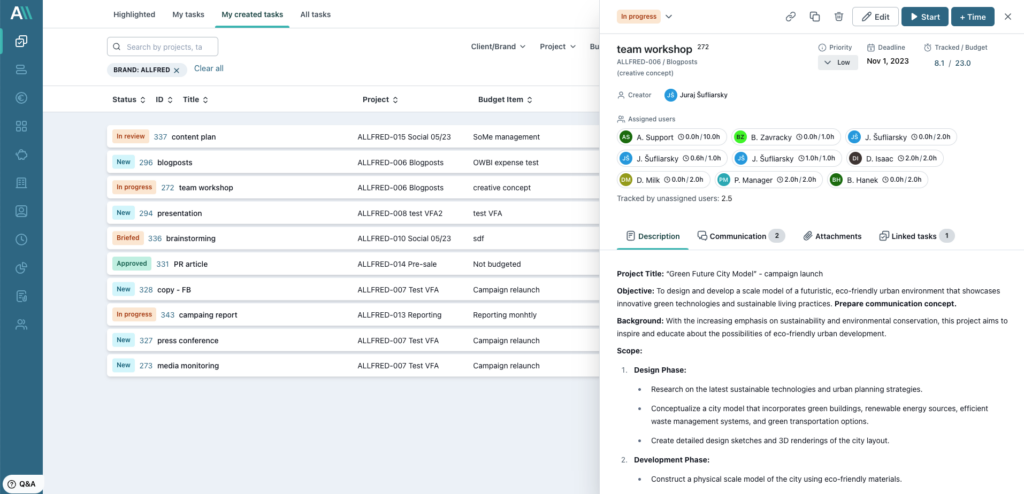
Best Practices
To optimize task management in a creative agency, several best practices can be adopted:
- Utilization of Task Management Software: One of the most effective ways to improve task management is by employing specialized software. These tools provide a clear overview of all tasks, their deadlines, and progress. They allow for easy tracking and updating of tasks, ensuring everyone in the team is on the same page.
- Regular Team Meetings: Incorporating regular meetings into the workflow provides an opportunity for team members to update each other on their task progress. These meetings can serve as a platform for addressing challenges, reallocating tasks if necessary, and ensuring that there are no bottlenecks in the workflow.
- Setting Clear Priorities: Task prioritization is key in managing an extensive list of tasks. It’s important to identify which tasks are critical and time-sensitive and which can be deferred. This helps in allocating resources and efforts more effectively.
- Encouraging Open Communication: Open lines of communication within the team are vital for effective task management. Team members should feel comfortable discussing the challenges they face in their tasks and seeking assistance when needed.
#3 Budgeting 💰
Budgeting in a creative agency goes beyond mere number crunching. It is a strategic activity that encompasses the planning and monitoring of financial resources allocated for various projects and the overall operational expenses. Effective budgeting in an agency context involves forecasting income and expenditures, establishing limits, and making informed financial decisions that align with the agency’s objectives and capabilities.
Impact
In a creative agency, budgeting is a key factor in ensuring the agency’s financial stability and health. By tightening finances, agencies can prevent cost overruns that often lead to financial strain. Moreover, meticulous budgeting is indispensable for maintaining and enhancing profitability. It allows agencies to allocate resources where they are most needed, ensuring that every dollar spent contributes to the agency’s success.
Approach
To harness the full benefits of budgeting, you should consider adopting a comprehensive approach:
- Developing Comprehensive Budget Plans: Creating detailed budget plans involves looking beyond immediate project needs. It requires considering future financial scenarios and incorporating contingencies. This forward-thinking approach ensures preparedness for unexpected expenses or changes in project scopes.
- Utilizing Budget Tracking Tools: It is crucial to track expenditures and compare them against the budget. Employing budget tracking tools can provide real-time insights into financial performance. These tools help identify areas where spending is higher than planned and enable timely adjustments.
- Regular Financial Reviews: Conducting regular reviews of the agency’s financial performance against the set budget is essential. These reviews should not just focus on identifying deviations but also on understanding the reasons behind them and making strategic adjustments.
- Involving the Team: Budgeting should not be the sole responsibility of the finance department. Involving account managers or team leaders in the budgeting process can lead to more accurate forecasts and a greater understanding of financial constraints and opportunities within the agency.
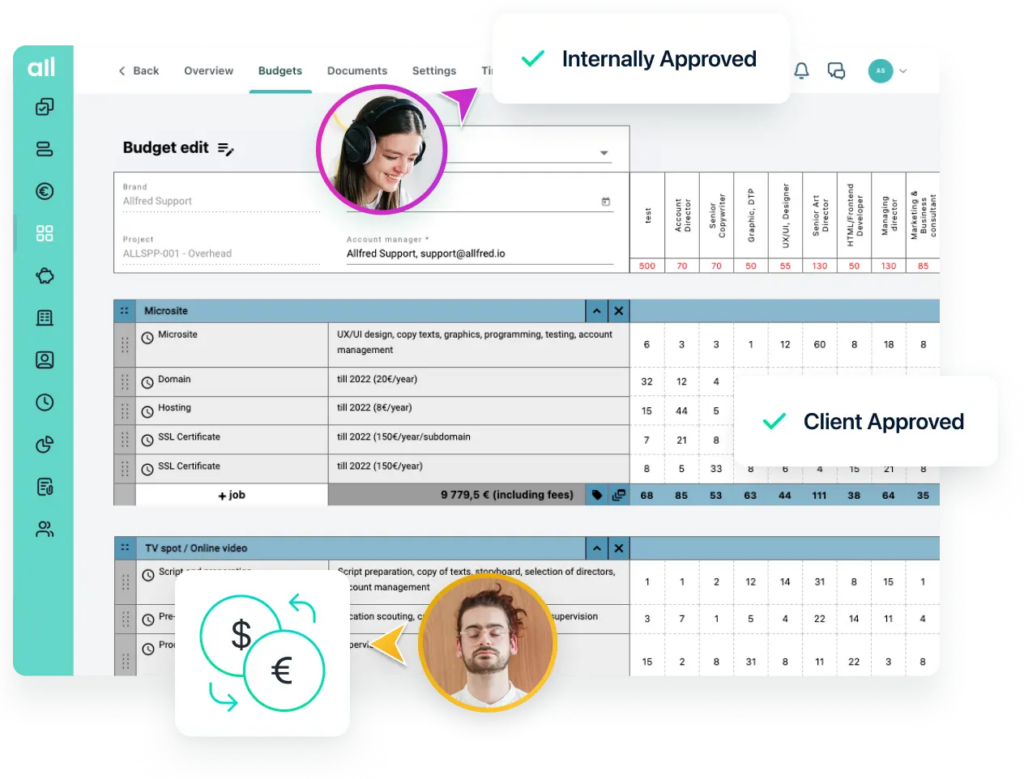
#4 Project Management 📈
Project management in a creative agency is not just about guiding a project through its lifecycle; it’s about executing each phase with precision and insight. It involves a detailed orchestration of planning, executing, and delivering projects, ensuring they align perfectly with client requirements and the agency operations. This phase of project execution is crucial as it’s where strategies are put into action, and ideas are transformed into reality.
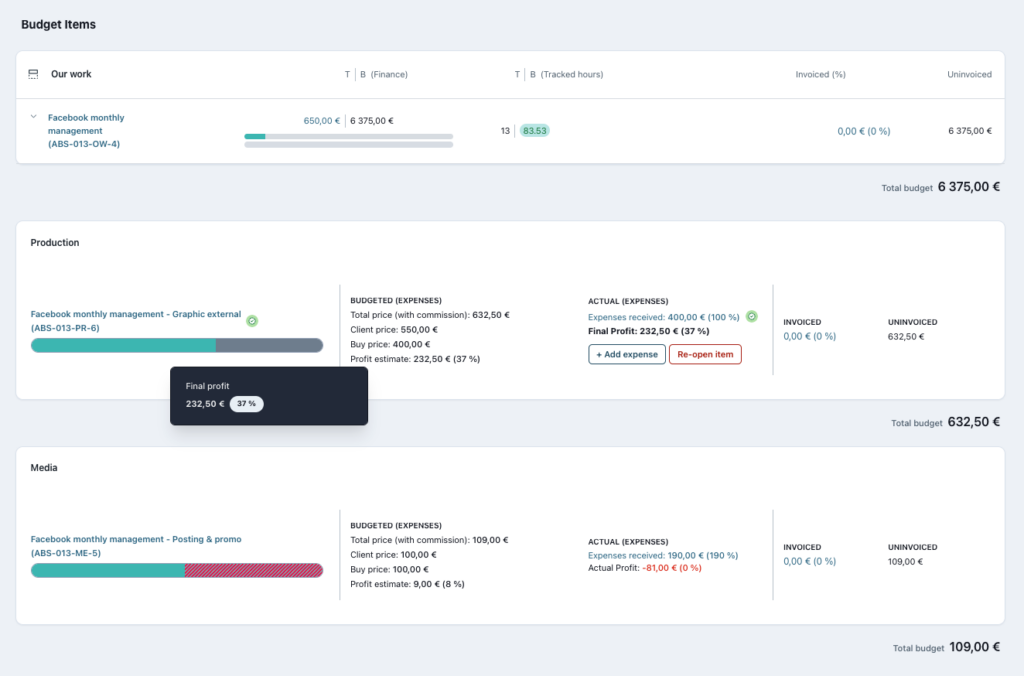
Benefits
Effective project management offers numerous benefits:
- Streamlined Execution: By applying structured project execution methods, agencies can ensure smooth progress from concept to completion, avoiding common pitfalls and delays.
- Gathering and Utilizing Insights: A key part of project execution is gathering data and insights, which help in making informed, data-driven decisions throughout the project lifecycle.
- Client Involvement and Satisfaction: Using project management tools to share progress and reports with clients keeps them in the loop, fostering transparency and trust.
Methodology
The methodology of project management in creative agencies should focus on data-driven execution and client engagement:
- Data-Driven Project Execution: Utilize tools like Allfred to gather and analyze project data. This data can provide valuable insights into project progress, team performance, and resource utilization, helping managers make informed decisions.
- Client Engagement: Keeping clients involved and informed is crucial. Tools that offer efficient reporting features allow agencies to share updates and reports, ensuring clients are always aware of the project’s progress.
- Regular Project Reviews with Data Insights: Incorporate regular reviews of project data to assess progress, identify potential issues, and adjust strategies as needed. Use the insights gathered to refine project plans and execution strategies.
- Using Allfred for Enhanced Project Management: Allfred, with its comprehensive project management features, can be a pivotal tool in this process. It not only aids in efficient project execution but also in gathering and presenting data that can drive decision-making and client reporting.

By focusing on these aspects of project management, agencies can ensure that their projects are executed effectively, with a constant flow of data-driven insights and active client engagement. This approach leads to more successful project outcomes and higher client satisfaction.
#5 Invoicing 🧾
The critical component of the financial management entails the process of billing clients for services rendered. This step is not just a formality but a crucial aspect of managing the agency’s cash flow. Effective invoicing involves more than just sending out bills; it requires accuracy, clarity, and timeliness to ensure that the financial health of the agency is maintained.
Necessity
The importance of timely and accurate invoicing cannot be overstated:
- Maintaining Healthy Cash Flow: Prompt and precise invoicing plays a pivotal role in maintaining a steady cash flow, which is the lifeblood of any agency. It ensures that the agency has the necessary funds to cover its operational costs and invest in growth opportunities.
- Building Client Trust: Accurate invoicing reflects professionalism and helps in building trust with clients. It shows that the agency values transparency and is diligent in its financial dealings.
- Upholding Professional Image: Well-structured and clear invoices project a professional image of the agency, reinforcing its credibility and attention to detail.
Techniques
To optimize the invoicing process and agency operations, agencies should consider the following techniques:
- Automation of Invoicing Processes: Utilizing invoicing software that automates the billing process can significantly enhance efficiency. Tools like Allfred offer features that generate invoices based on project details and timelines, reducing manual errors and saving time.
- Clarity and Detail in Invoices: Ensure that each invoice sent out is clear, detailed, and free of ambiguities. This includes a thorough breakdown of services provided, costs or payment terms, and deadlines. Clear invoices prevent misunderstandings and facilitate quicker payment processing.
- Timely Invoice Dispatch: Invoices should be sent promptly after the completion of a project or as per the agreed terms in the contract. Delayed invoicing can lead to delayed payments, adversely affecting the agency’s cash flow.
- Using Technology for Efficiency: Leverage finance management tools like Allfred that offer features like digital invoicing, automatic reminders for due payments, and easy tracking of sent and received invoices. This not only streamlines the invoicing process but also provides valuable insights into the financial aspects of project management.
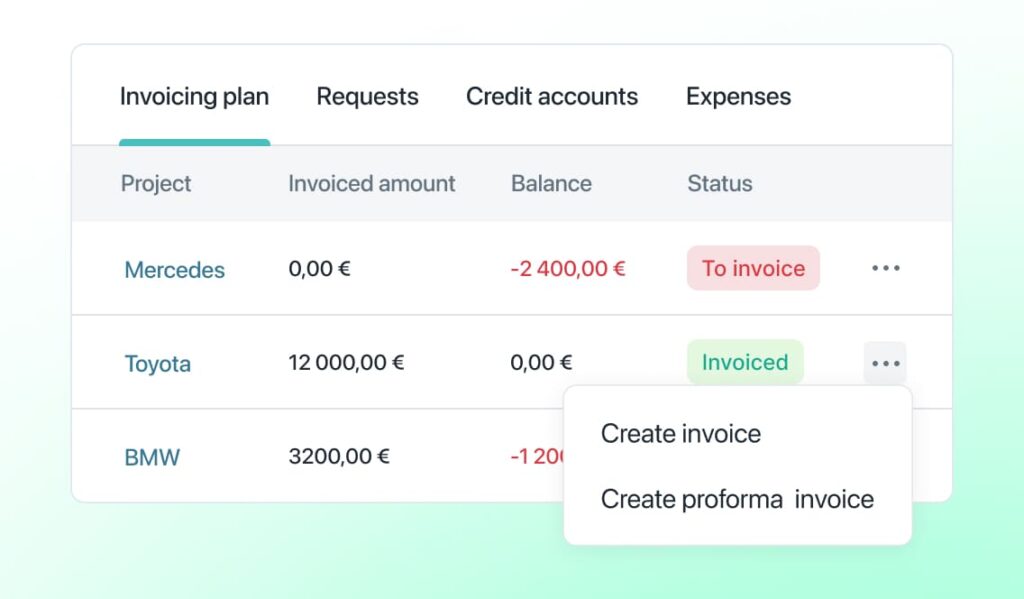
By adopting these invoicing techniques, agencies can ensure a smoother financial process, leading to better cash flow management and enhanced client relationships.
#6 Reporting 📊
Within the agency operations, reporting stands as a critical component. It involves the systematic provision of insights and analytics regarding various aspects of an agency’s performance. Regular and effective reporting is not just about data compilation; it’s a vital practice that informs strategic decision-making and guides the agency towards its goals.
Role of Reporting
The role of reporting in optimizing agency operations is multifaceted:
- Aiding Strategic Decision-Making: Regular reports furnish leaders with the necessary data to make informed decisions. By analyzing performance metrics, agencies can strategically steer their operations in the right direction.
- Highlighting Areas for Improvement: Reporting helps identify areas within agency operations that require attention or improvement. This could range from process inefficiencies to underperforming projects.
- Measuring Progress: Reports provide a measurable way to track progress against set goals and objectives. They allow agencies to assess whether they are on track and make necessary adjustments to their strategies.
Implementation
Developing an effective reporting system is essential for any CEO or team leader focused on optimizing agency operations:
- Establishing a Regular Reporting Schedule: Consistency is key in reporting. Agencies should develop a schedule that ensures regular analysis and dissemination of reports. This could be weekly, monthly, or quarterly, depending on the nature of the operations and the needs of the agency.
- Utilizing Advanced Reporting Tools: Leveraging modern reporting tools can significantly enhance the reporting process. These tools can automate data collection and generate comprehensive reports that provide deep insights into various facets of agency operations.
- Creating Reports for Different Stakeholders: Different stakeholders may require different types of reports. Tailoring reports to suit the needs of specific audiences, whether it’s the agency’s leadership team, department heads, or clients, ensures that the information provided is relevant and actionable.
- Leveraging all-in-one tools: Reporting should not be an isolated activity; instead, it should be integrated with other aspects of agency operations. This includes connected reporting with project management, financial software, and other operational features to ensure a holistic view of the agency’s performance.
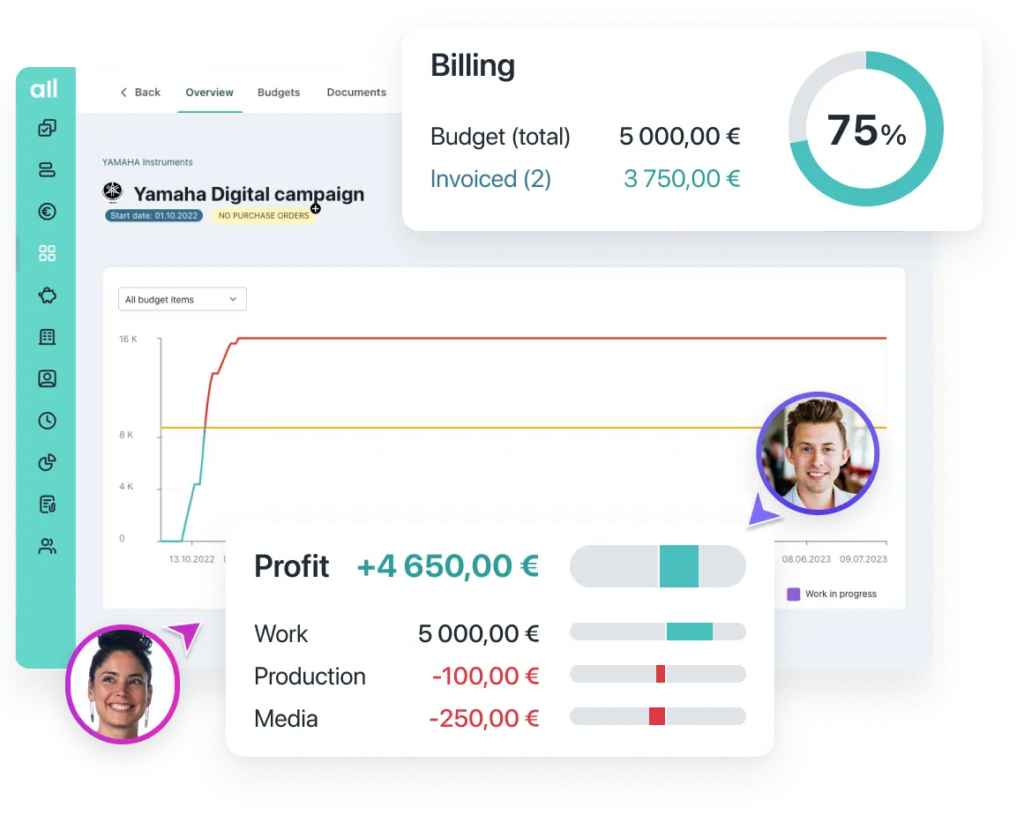
Through effective reporting, agencies can gain a clear understanding of their operations, leading to more informed decision-making and a path to continuous improvement. Reporting not only sheds light on the current state of affairs but also paves the way for future growth and efficiency in agency operations.
#7 Client Relations 💼
In the realm of agency operations and workflow, client relations hold a place of paramount importance. It’s an area dedicated to nurturing and maintaining positive relationships with clients, which is foundational to the success and growth of any agency. Client relations are not just about managing communications; they are about building lasting partnerships based on trust, understanding, and mutual respect.
Value of Strong Client Relations
The value of robust client relations in enhancing agency operations and workflow is immense:
- Repeat Business and Referrals: Satisfied clients are more likely to return for future projects and recommend the agency to others, expanding the client base and fostering business growth.
- Building a Solid Reputation: Positive client interactions and successful project outcomes contribute to a strong agency reputation, which is crucial in a competitive industry where reputation can significantly influence new business opportunities.
- Enhancing Agency Workflow: Good client relations can streamline agency workflow, as understanding client needs and expectations helps in aligning the agency’s efforts more effectively from the onset of a project.
Strategies for Effective Client Relations
To foster and maintain strong client relations, agencies should adopt several key strategies:
- Open and Consistent Communication: Maintain regular and transparent communication with clients. Keeping clients informed about project progress, addressing their concerns promptly, and being available for discussions are essential practices.
- Understanding Client Needs: Take the time to understand each client’s unique needs, preferences, and business objectives. This understanding enables the agency to tailor its services and recommendations more effectively, leading to better client satisfaction.
- Delivering Quality Work Consistently: The cornerstone of strong client relations is the consistent delivery of quality work. Meeting, and whenever possible, exceeding client expectations, cements the agency’s reputation for reliability and excellence.
- Regular Feedback and Proactive Problem Solving: Implement regular feedback mechanisms to gauge client satisfaction and address any issues proactively. This not only helps in resolving problems before they escalate but also demonstrates the agency’s commitment to client satisfaction.
- Building Relationship Beyond Projects: Foster a relationship with clients that extends beyond just project work. Understanding their industry trends, offering valuable insights, and being a partner in their growth can deepen the relationship.
By focusing on these strategies, agencies can significantly enhance their client relations, leading to a more robust and successful agency operation and workflow.
#8 Care of Employees ❤️
Employee Care in Agency Operations and Workflow
Care of your employees can significantly influence the agency’s overall success. It revolves around creating and maintaining a work environment that is not only positive but also supportive and nurturing for the staff. Employee care in an agency is about acknowledging that the well-being of the team is as crucial as any other operational component.
Impact of Employee Care
The impact of diligently caring for employees within the agency is far-reaching:
- Boost in Productivity: Employees who feel valued and supported are more likely to be engaged and productive, directly benefiting the agency operations and workflow.
- Enhanced Employee Morale: A positive work environment contributes to higher job satisfaction, leading to improved morale among team members.
- Reduction in Turnover Rates: When agencies invest in their employees’ well-being, staff members are more inclined to stay, reducing turnover rates and the associated costs and disruptions.
Approaches to Employee Care
To effectively care for employees, several approaches can be adopted in you agency operations:
- Implementing Employee Wellness Programs: Wellness programs that address both physical and mental health can play a significant role in employee care. These programs could include health screenings, mental health days, and access to counseling services.
- Offering Flexible Working Conditions: Flexibility in work arrangements, such as remote working options or flexible hours, can greatly contribute to employee well-being. It demonstrates the agency’s understanding of work-life balance and its commitment to accommodating the diverse needs of its staff.
- Ensuring Open Communication: Establish open channels for employees to voice their feedback, concerns, and suggestions. Regular check-ins, anonymous surveys, and open-door policies can encourage employees to share their thoughts and feelings, making them feel heard and valued.
- Fostering a Supportive Culture: Cultivate a workplace culture that supports collaboration, learning, and personal growth. Recognize and celebrate achievements, encourage continuous learning, and provide opportunities for career advancement.
- Prioritizing Mental Health: Recognize the importance of mental health in the workplace. Provide resources and support for mental health, including access to mental health days and educational resources.
By integrating these approaches into the fabric of agency operations and workflow, agencies can ensure that their teams are well-cared-for, leading to a more productive, motivated, and stable workforce.
#9 Talent Retention 🌟
Talent retention directly influences the agency’s success and growth. It is about much more than just keeping employees on the payroll; it’s about actively engaging and committing the agency’s most valuable resource – its talented personnel. It involves creating an environment where employees feel motivated, valued, and see a clear path for their career advancement within the agency.
Significance of Talent Retention
The significance of retaining top talent within an agency cannot be overstated:
- Maintaining Creativity and Expertise: Talented employees are the driving force behind an agency’s creativity and expertise. Their retention ensures that the agency continues to deliver innovative and high-quality work.
- Building a Strong Agency Reputation: Agencies known for retaining top talent often earn a reputation for being great places to work, which can attract even more skilled professionals.
- Ensuring Continuity and Stability: High employee turnover can lead to disruptions in workflow and project continuity. Retaining experienced staff ensures stability and a deep understanding of the agency’s operations and client needs.
Methods for Effective Talent Retention
To successfully retain talented employees, agencies should consider adopting the following methods:
- Offering Competitive Benefits: Providing a competitive benefits package that goes beyond basic compensation can play a significant role in talent retention. This could include health insurance, retirement plans, performance bonuses, and other perks that contribute to an employee’s overall well-being and satisfaction.
- Career Development Opportunities: Offering opportunities for professional growth is crucial. This can be achieved through continuous learning programs, mentorship opportunities, and clear pathways for career advancement within the agency.
- Cultivating a Culture of Creativity and Innovation: Foster a workplace culture that values and encourages creativity and innovation. This includes providing employees with the freedom to explore new ideas, acknowledging and rewarding creative efforts, and fostering a collaborative and supportive environment.
- Recognizing and Valuing Contributions: Regularly acknowledge and appreciate the contributions of employees. Recognition programs, awards, and even simple gestures of appreciation can significantly impact employee morale and loyalty.
- Encouraging Work-Life Balance: Promote a healthy work-life balance through flexible work schedules, remote work options, and a supportive approach to personal needs and family commitments.
By focusing on these methods, agencies can enhance their talent retention strategies, ensuring that they not only attract but also retain the creative and skilled professionals essential for their success and the smooth operation of their agency workflow.
Key Outcomes, and Next Steps for Your Agency Operations Optimization
As we’ve journeyed through the various facets of agency operations, from resource planning and task management to client relations and talent retention, it’s clear that optimizing these aspects is crucial for the health and success of any creative agency. Each area we’ve explored plays a pivotal role in streamlining your agency’s workflow and enhancing overall performance.
Technology, without a doubt, stands as a significant ally in this quest for optimization. By integrating tools such as project management software, CRM systems, and financial management platforms, you can bring cohesiveness to various aspects of your agency’s operations. These tools not only increase efficiency but also offer better data management and decision-making capabilities.
Bringing It All Together
Now, as we wrap up, it’s important to reflect on the key outcomes we aim for – increased efficiency in operations, heightened client and employee satisfaction, and sustainable business growth. By implementing the strategies and embracing the tools discussed, your agency can move towards a more streamlined and productive future.
Next Steps for Your Agency
The journey to optimizing your agency operations is ongoing and ever-evolving. Here are some actionable next steps to consider:
- ✅ Evaluate Your Current Operations: Take a close look at how your agency functions today. Identify areas that are working well and areas that need improvement.
- ✅ Implement Strategic Changes: Based on your evaluation, start implementing the strategies discussed. Whether it’s adopting new technologies, refining your project management process, or enhancing your client relations approach, each change is a step towards optimization.
- ✅ Stay Informed and Adapt: The landscape of agency operations is constantly changing. Stay informed about new trends and technologies, and be ready to adapt your strategies as needed.
- ✅ Seek Feedback and Iterate: Regular feedback from your team and clients is invaluable. Use it to refine your approaches and continuously improve your agency’s operations.
Remember, optimizing your agency operations is not just about implementing new tools or processes; it’s about creating a culture of efficiency, creativity, and growth.
Ready to Optimize Your Agency Operations?
Embarking on the journey of optimizing your agency operations can seem daunting, but it doesn’t have to be. With Allfred, an all-in-one solution designed specifically for creative agencies, streamlining your agency workflow and enhancing overall efficiency becomes not just achievable but straightforward.
Allfred: Your Partner in Agency Optimization
Allfred’s comprehensive suite of tools is tailored to address the multifaceted needs of agency operations. From resource planning and task management to budgeting and invoicing, Allfred brings a level of simplicity and effectiveness that transforms the way your agency functions.
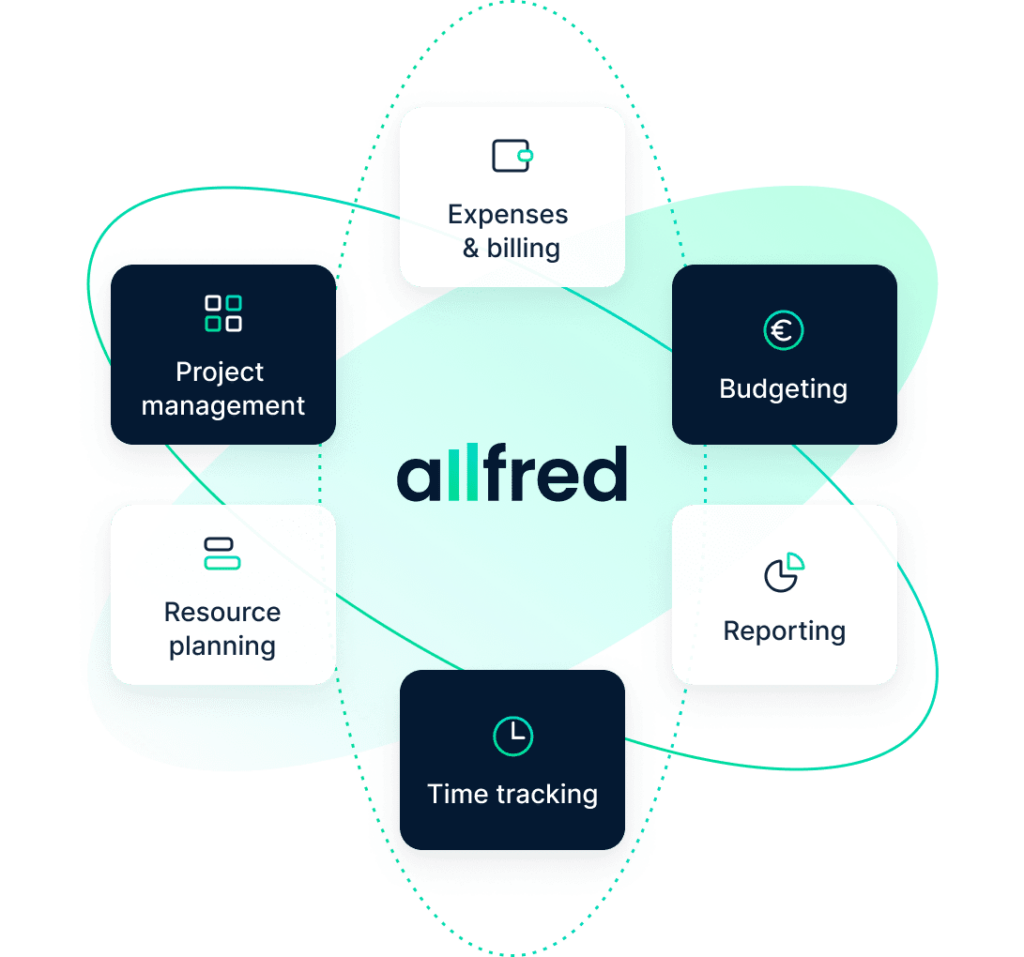
- Streamlined Task Management: Keep your projects on track with intuitive task management features.
- Efficient Resource Planning: Gain insights into your team’s capacity and allocate resources effectively.
- Simplified Project Management: Oversee every aspect of your projects, ensuring they stay within scope, budget, and timeline.
- Automated Invoicing and Financial Tracking: Simplify your billing processes with automated invoicing and keep a close eye on your financial health.
Visit Allfred’s Blog for More Insights
For more tips, strategies, and insights into optimizing your agency operations, visit Allfred’s Blog. Our blog is a resource hub where you’ll find a wealth of information tailored to the unique challenges and opportunities faced by creative agencies.
